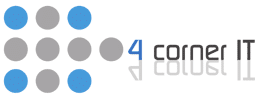Cloud Computing Can Optimize Business Operations

The cloud is used for a wide variety of use cases by businesses of all types, sizes, and industries. Cloud computing is an on-demand resource that allows you to access technology services. Furthermore, this is done without buying and maintaining physical data centers and servers. The technology possible within cloud providers also includes application development […]
In-House or Remote, Automated Tools Bring Value

Automation, as a concept, is a valuable capability. Whether an employee works remotely or is in the office for regular operations. Indeed, many businesses are now encouraging their team members to do both. Let’s review how a hybrid workplace can have a positive experience with automation in place… and why it’s essential for security’s sake. […]
Let’s Look at Some of the Best Business Software Solutions

All businesses utilize software to a certain extent, but not all companies have the same needs. That being said, there are certain types of software that all businesses can benefit from, regardless of industry or service offerings. We’ve put together a list of business software solutions that companies can utilize to improve operations. Productivity Suites […]
Hackers Target Cloud Services in the New Normal

Many employees all over the world have benefited from the recent pandemic’s ability to push millions into working remotely from home. With decreased commute times and the ability to work in a more casual environment, many employees are probably hoping to continue to work remotely for some time to come. While employees may be happy […]
5 Technology Challenges Businesses can Expect in 2020

As new solutions and inventions continue to aid businesses, they come with a ton of technology challenges. Where a connected world allows you to take your business digital, it comes with the risk of cyber-attacks. Where you can get clients from any corner of the world, there is the challenge of data privacy. But it […]

